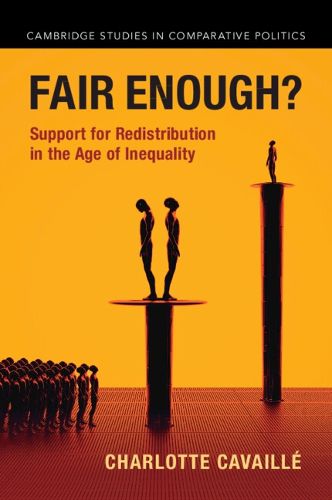Readings Newsletter
Become a Readings Member to make your shopping experience even easier.
Sign in or sign up for free!
You’re not far away from qualifying for FREE standard shipping within Australia
You’ve qualified for FREE standard shipping within Australia
The cart is loading…






Fair Enough? proposes and tests a new framework for studying attitudes toward redistributive social policies. These attitudes, the book argues, are shaped by at least two motives. First, people support policies that increase their own expected income. Second, they support policies that move the status quo closer to what is prescribed by shared norms of fairness. In most circumstances, saying the "fair thing" is easier than reasoning according to one's pocketbook. But there are important exceptions: when policies have large and certain pocketbook consequences, people take the self-interested position instead of the 'fair' one. Fair Enough? builds on this simple framework to explain puzzling attitudinal trends in post-industrial democracies including a decline in support for redistribution in Great Britain, the erosion of social solidarity in France, and a declining correlation between income and support for redistribution in the United States.
$9.00 standard shipping within Australia
FREE standard shipping within Australia for orders over $100.00
Express & International shipping calculated at checkout
Fair Enough? proposes and tests a new framework for studying attitudes toward redistributive social policies. These attitudes, the book argues, are shaped by at least two motives. First, people support policies that increase their own expected income. Second, they support policies that move the status quo closer to what is prescribed by shared norms of fairness. In most circumstances, saying the "fair thing" is easier than reasoning according to one's pocketbook. But there are important exceptions: when policies have large and certain pocketbook consequences, people take the self-interested position instead of the 'fair' one. Fair Enough? builds on this simple framework to explain puzzling attitudinal trends in post-industrial democracies including a decline in support for redistribution in Great Britain, the erosion of social solidarity in France, and a declining correlation between income and support for redistribution in the United States.